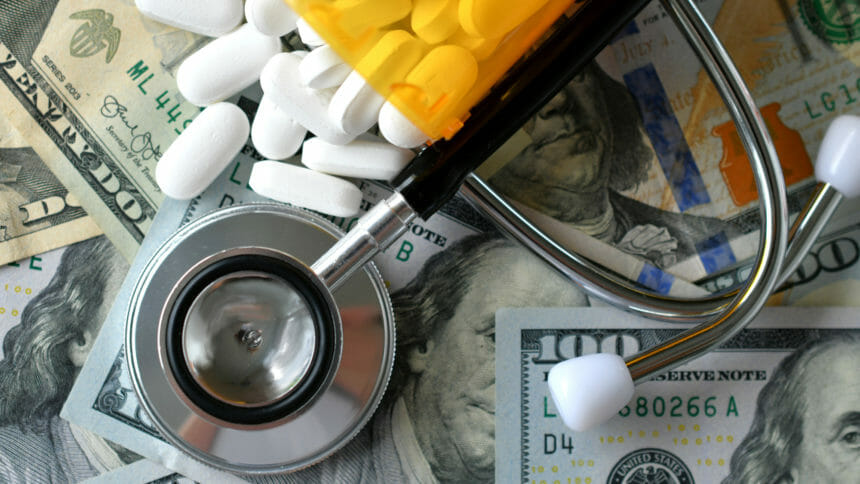
Some older Americans, regardless of income, are worried about their ability to meet their healthcare costs, according to the results of a survey released Tuesday by West Health and Gallup.
Older adults with annual household incomes of less than $60,000 reported the highest levels of unease, with 41% indicating that they were “concerned” or “extremely concerned” that they would be unable to pay for basic healthcare over the next 12 months, 42% worried that they would be unable to pay for needed medication in that timeframe, and 45% concerned or extremely concerned that a major health event could bankrupt them.
Fear existed among those whose annual household incomes were more than $60,000, too, however, with 15% reporting being concerned or extremely concerned that they would be unable to pay for basic healthcare over the next 12 months, 11% worried that they would be unable to pay for needed drugs in that timeframe, and 25% concerned or extremely concerned that a major health event could lead to bankruptcy.
Costs already had prevented some poll participants from seeking healthcare.
Thirteen percent of older adults with annual household incomes of less than $60,000 said that at least one time over the past 12 months, they had not sought a needed treatment due to cost. In this same income group, 20% said they were unable to pay for prescribed medication over the same time period due to cost, and 10% said they had skipped a needed procedure or test over the past year due to cost.
Once again, older adults with higher incomes were not immune, although they were less affected.
Five percent of older adults with annual household incomes of more than $60,000 said that at least one time over the past 12 months, they had not sought a needed treatment due to cost. In this same income group, 6% said they were unable to pay for prescribed medication over the same time period due to cost, and 4% said they had skipped a needed procedure or test over the past year due to cost.
Overall, 56% of adults aged 65 or more years rated the U.S. healthcare system “among the best or the best in the world” for quality of care compared with systems in other developed countries, however. Thirteen percent said it was “among the worst of the worst in the world.”
Forty-four percent of older survey-takers rated the U.S. healthcare system “among the best or the best in the world” for quality of care relative to costs compared with systems in other developed countries. Twenty percent said it was “among the worst of the worst in the world” in that regard.
The poll was conducted Jan. 14 to Feb. 20 via landline telephone and cellphone.



